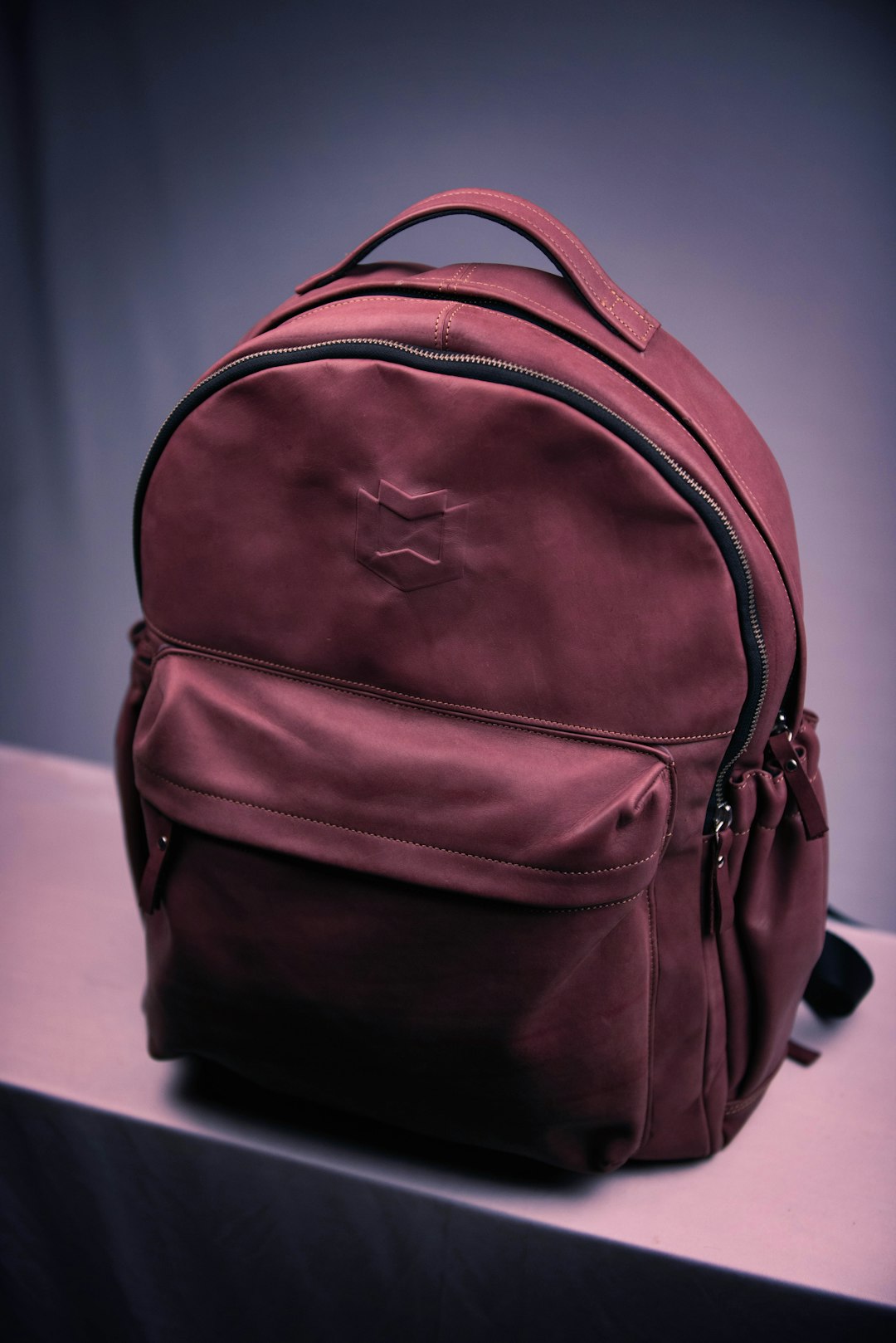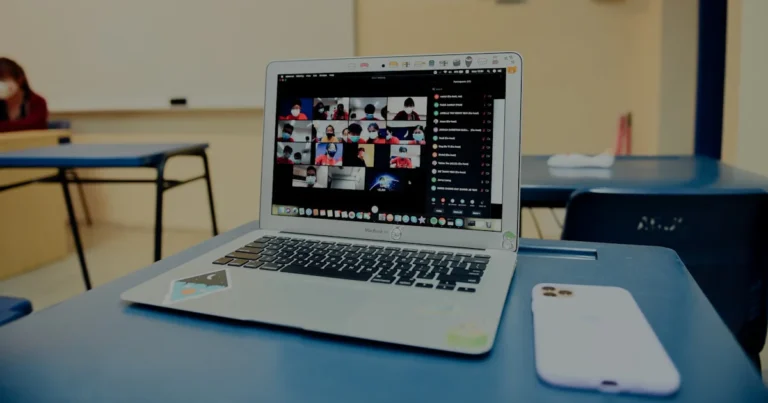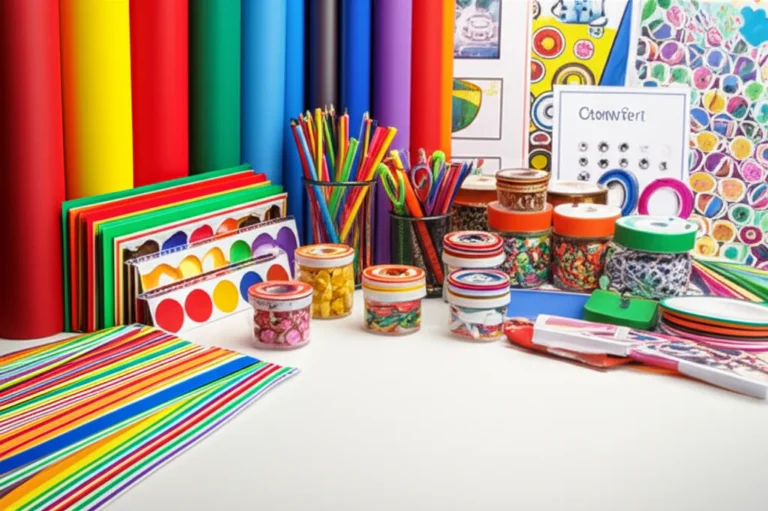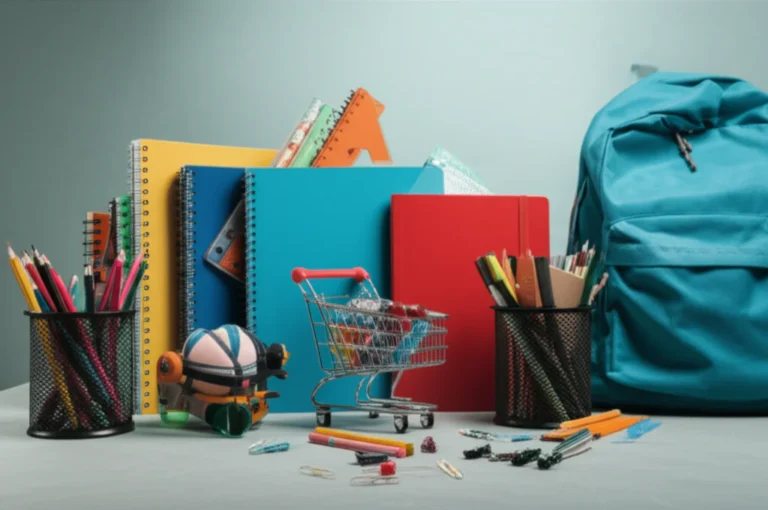Support our educational content for free when you purchase through links on our site. Learn more
How Much Does One Spend on School Supplies? 10 Smart Insights (2025) 🎒

Back-to-school season is upon us, and with it comes the annual ritual of hunting down pencils, notebooks, and all those must-have supplies. But have you ever stopped to wonder how much families really spend on school supplies each year? Spoiler alert: it’s more than just a few bucks for crayons and glue sticks. From elementary basics to high school tech gear, the costs can add up fast—and we’re here to break it all down for you.
Did you know that the average family spends anywhere from $100 to over $500 per child, depending on grade level and location? And that’s before factoring in backpacks, extracurricular gear, and those sneaky “teacher wish list” items. In this article, we’ll unpack the true cost of school supplies, reveal 10 savvy strategies to save big, and share insider tips from our Teacher Supply Store™ experts. Curious about how timing your shopping or choosing the right brands can make a difference? Keep reading—you might just find your new favorite money-saving hack!
Key Takeaways
- School supply costs vary widely by grade level, location, and curriculum demands, with high schoolers typically costing the most.
- Timing your purchases around back-to-school sales and tax holidays can lead to significant savings.
- Brand choices matter: investing in quality items like Elmer’s® glue or Fiskars® scissors pays off, while generic notebooks often suffice.
- Hidden expenses such as backpacks, tech gear, and extracurricular supplies can double your budget if you’re not careful.
- Community resources and supply swaps are excellent ways to reduce costs and support sustainability.
Ready to shop smart? Check out these trusted brands and categories to get started:
- Crayola® Crayons & Markers: Amazon | Crayola Official
- Ticonderoga® Pencils: Amazon | Ticonderoga Official
- Elmer’s® Glue Sticks: Amazon | Elmer’s Official
- Fiskars® Scissors: Amazon | Fiskars Official
Table of Contents
- ⚡️ Quick Tips and Facts: Your Back-to-School Budget Blueprint!
- 🎒 The Ever-Evolving Backpack Budget: A Historical Look at School Supply Spending
- 💰 Unpacking the Price Tag: What Really Drives School Supply Costs?
- 📚 Grade Level & Curriculum Demands: From Crayons to Calculators
- 🎨 Subject-Specific Needs: Beyond the Basics – Art, STEM, & More!
- 🍎 The “Must-Have” List: Teacher Requests & School Requirements
- ✨ Brand Loyalty vs. Budget Buys: Is That Name-Brand Pencil Worth It?
- 🗺️ Location, Location, Location: Regional Price Differences Across the USA
- 📊 The National Report Card: What Are Families Really Spending on School Supplies?
- 💡 Smart Strategies to Slash Your School Supply Spending! (Our Top 10 Teacher-Tested Tips!)
- 🗓️ Timing is Everything: The Art of Back-to-School Sales & Clearance Racks
- 🏡 Shop Your Own Home First! The Treasure Hunt in Your Closets
- 💲 Embrace the Dollar Store & Discount Retailers: Hidden Gems Galore!
- 🤝 Bulk Buying Bonanza: Splitting Costs with Friends & Family
- 💪 Quality Over Quantity: Investing in Durability for Long-Term Savings
- 🏷️ Leveraging Loyalty Programs & Coupons: Don’t Leave Money on the Table!
- 🛒 Online vs. In-Store: Where’s the Best Deal for Your Supply Haul?
- ♻️ The Power of Hand-Me-Downs & Swaps: Sustainable Savings!
- 💸 Don’t Forget Tax Holidays! Maximizing Savings in Select States
- ❤️ Community Support & Assistance Programs: Help is Available!
- 🤫 The Hidden Costs: Beyond Pencils and Paper – What Else Adds Up?
- 😥 The Emotional Toll of Back-to-School Spending: Managing Stress & Expectations
- ✅ Conclusion: Making Sense of Your School Supply Spending
- 🔗 Recommended Links: More Resources for Smart Spending
- ❓ FAQ: Your Burning Questions About School Supply Costs, Answered!
- 📚 Reference Links: Our Sources & Further Reading
⚡️ Quick Tips and Facts: Your Back-to-School Budget Blueprint!
Welcome to the wild world of school supply spending! Before we dive deep, here are some quick nuggets from the Teacher Supply Store™ team to get you started:
- Average spending per student ranges from about $100 in elementary to over $500 in high school, depending on needs and location. (Schoolsupplyboxes.com)
- Teachers often spend out-of-pocket—an average of $860 annually! That’s why understanding your own budget is key. (Myimpacks.com)
- Back-to-school sales and tax holidays can save you a bundle if you time it right.
- Reuse and recycle: Check your home first before buying new. You’d be surprised what’s hiding in that junk drawer!
- Brand names vs. generic: Sometimes the fancy Crayola® crayons are worth it; other times, the dollar store knockoffs do just fine.
- Hidden costs like backpacks, lunchboxes, and extracurricular gear can sneak up on you.
Curious how these factors stack up in real life? Stick around—we’ll unpack every detail, from why middle schoolers cost more to how to snag the best deals without losing your mind. Plus, we’ll share some insider tips teachers swear by! And if you want to know more about why teachers often buy supplies themselves, check out our related article: Do Teachers Have to Buy Their Own Classroom Supplies? 7 Surprising Truths (2025) 🎒.
🎒 The Ever-Evolving Backpack Budget: A Historical Look at School Supply Spending
School supplies have come a long way since the days of slate boards and chalk! Understanding the history of school supply costs helps us appreciate why prices have shifted and what trends influence today’s budgets.
From Chalkboards to Chromebooks: The Evolution of School Supplies
- 1950s-70s: Basic supplies like pencils, notebooks, and rulers dominated. Prices were low, but families still felt the pinch.
- 1980s-90s: Introduction of calculators, binders, and more specialized items. The rise of brand names like Ticonderoga® pencils and Crayola® crayons began.
- 2000s-Present: Technology exploded—laptops, tablets, and instructional technology became essential. This pushed budgets higher, especially in middle and high schools.
Inflation and Supply Chain Effects
- Inflation has steadily increased costs, but supply chain disruptions (like those during the COVID-19 pandemic) caused spikes in prices for items like disinfectant wipes and hand sanitizer.
- According to the U.S. Bureau of Labor Statistics, school supply prices have increased roughly 3-5% annually over the last decade.
Anecdote from Our Team
One of our veteran educators remembers when a box of 12 Ticonderoga® pencils cost less than a dollar in the 1980s. Today, the same box can be found for a few dollars, but the quality and durability have improved significantly.
This historical context sets the stage for understanding the complex factors that influence what you pay today.
💰 Unpacking the Price Tag: What Really Drives School Supply Costs?
Let’s get to the heart of the matter: Why do school supplies cost what they do? It’s not just about pencils and paper. Here’s a breakdown of the main cost drivers.
📚 Grade Level and Curriculum Demands: From Crayons to Calculators
- Elementary school: Focus on basics — crayons, glue sticks, wide-ruled notebooks.
- Middle school: More specialized supplies — scientific calculators, graphing paper, art supplies.
- High school: Advanced tools — graphing calculators (like TI-84 Plus), lab notebooks, laptops/tablets.
Higher grade levels generally mean more expensive and specialized supplies, which explains the jump in average spending.
🎨 Subject-Specific Needs: Beyond the Basics – Art, STEM, & More!
- Art classes require quality paints, brushes, and sketchbooks.
- STEM subjects often demand calculators, geometry sets, and sometimes even robotics kits.
- Music classes might ask for instrument maintenance supplies.
These extras add up quickly, especially if your child takes multiple electives.
🍎 The “Must-Have” List: Teacher Requests & School Requirements
- Teachers often provide detailed supply lists, which can vary widely.
- Some schools require specific brands or types (e.g., Crayola® markers), which can bump up costs.
- Classroom donations and wish lists sometimes add to family expenses.
✨ Brand Loyalty vs. Budget Buys: Is That Name-Brand Pencil Worth It?
- Brand names like Crayola®, Ticonderoga®, and Elmer’s® are known for quality.
- Generic or store brands can be cheaper but sometimes sacrifice durability or color vibrancy.
- Our experience: For essentials like glue and scissors, brand matters more; for notebooks and folders, generic is usually fine.
🗺️ Location, Location, Location: Regional Price Differences Across the USA
- Urban areas and regions with higher costs of living tend to have pricier supplies.
- Sales tax rates and availability of tax holidays vary by state.
- Shipping costs for online orders can add unexpected fees.
📊 The National Report Card: What Are Families Really Spending on School Supplies?
Let’s grade the average spending habits of families nationwide, based on the latest data and our own insights.
| Grade Level | Average Spending per Student | Key Cost Drivers |
|---|---|---|
| Elementary School | $100 – $150 | Basic supplies, crayons, glue |
| Middle School | $150 – $300 | Calculators, binders, specialty items |
| High School | $300 – $500+ | Technology, lab supplies, backpacks |
✏️ Elementary School Essentials: The Early Years’ Expense
- Supplies are mostly basic but still add up.
- Parents often buy bulk crayons, glue sticks, and folders.
- Backpack and lunchbox costs are additional but essential.
📓 Middle School Must-Haves: Navigating the Tween Years’ Needs
- More subjects mean more supplies.
- Calculators (TI-30 or TI-84) are a common expense.
- Organizational tools like binders and planners become important.
💻 High School Hype & Higher Costs: Preparing for College & Beyond
- Technology is king: laptops, tablets, and software licenses.
- Specialized gear for science labs, art studios, and athletics.
- Backpacks with tech compartments and durable lunchboxes.
🚀 Beyond the Basics: Tech, Backpacks, Lunchboxes, & Athletic Gear
- These “extras” can sometimes double your supply budget.
- Durable brands like JanSport® backpacks or Thermos® lunch containers are investments.
- Athletic gear and uniforms add to the total cost.
💡 Smart Strategies to Slash Your School Supply Spending! (Our Top 10 Teacher-Tested Tips!)
Ready to save some serious cash? Our Teacher Supply Store™ team has compiled 10 tried-and-true strategies that will make your wallet sing.
1. 🗓️ Timing is Everything: The Art of Back-to-School Sales and Clearance Racks
- Shop early during back-to-school sales to catch the best deals.
- Clearance racks post-school year can offer steep discounts for next year.
- Use apps like Honey or Rakuten to find coupons and cashback.
2. 🏡 Shop Your Own Home First! The Treasure Hunt in Your Closets
- Check for leftover supplies from last year.
- Organize a family “supply swap” to share unused items.
- You might find unopened packs of pencils or markers hiding in drawers!
3. 💲 Embrace the Dollar Store and Discount Retailers: Hidden Gems Galore!
- Dollar Tree and Five Below often have quality basics.
- Brands like Crayola® sometimes appear in smaller packs at discount stores.
- Beware of very cheap items that may break easily.
4. 🤝 Bulk Buying Bonanza: Splitting Costs with Friends and Family
- Buy staples like pencils, glue, and paper in bulk from Costco or Sam’s Club.
- Split the cost with other parents to reduce individual expenses.
- Bulk buying is especially helpful for classroom donations.
5. 💪 Quality Over Quantity: Investing in Durability for Long-Term Savings
- Sometimes spending a bit more on a sturdy backpack or scissors saves money over time.
- Brands like Fiskars® scissors and JanSport® backpacks are teacher favorites.
- Avoid replacing cheap items multiple times.
6. 🏷️ Leveraging Loyalty Programs and Coupons: Don’t Leave Money on the Table!
- Sign up for Target Circle, Walmart+, and Staples Rewards.
- Use manufacturer coupons from brands like Elmer’s® and Crayola®.
- Stack coupons with sales for maximum savings.
7. 🛒 Online vs. In-Store: Where’s the Best Deal for Your Supply Haul?
- Amazon offers convenience and competitive pricing; check reviews carefully.
- Walmart and Target have in-store clearance and price matching.
- Don’t forget shipping costs and delivery times.
8. ♻️ The Power of Hand-Me-Downs and Swaps: Sustainable Savings!
- Organize school supply swaps in your community or neighborhood.
- Hand-me-down backpacks and lunchboxes are a huge money saver.
- Plus, it’s eco-friendly!
9. 💸 Don’t Forget Tax Holidays! Maximizing Savings in Select States
- Many states offer sales tax holidays on school supplies.
- Plan your shopping around these dates to save up to 7% or more.
- Check your state’s official website for details.
10. ❤️ Community Support and Assistance Programs: Help is Available!
- Some schools and nonprofits provide free or discounted supplies.
- Programs like DonorsChoose help fund classroom needs.
- Don’t hesitate to ask your school for assistance if you’re struggling.
🤫 The Hidden Costs: Beyond Pencils and Paper – What Else Adds Up?
School supplies are more than just what’s on the list. Let’s uncover some sneaky expenses that often catch families off guard.
⚽ Extracurricular Activities and Sports Gear: The After-School Budget Drain
- Uniforms, cleats, and equipment can add hundreds to your budget.
- Fees for clubs, music lessons, or sports camps are often separate.
- Plan ahead to avoid last-minute splurges.
🚌 Field Trips and School Events: Experiences That Cost
- Permission slips sometimes come with fees for transportation or admission.
- Fundraisers and school dances may require additional spending.
- Factor these into your overall school budget.
🙏 Classroom Donations and Teacher Wish Lists: Supporting Our Educators
- Many teachers maintain wish lists for supplies beyond the basics.
- Parents often contribute items like tissues, disinfectant wipes, or snacks.
- These costs, while voluntary, can add up quickly.
😥 The Emotional Toll of Back-to-School Spending: Managing Stress and Expectations
We get it—school supply shopping can be stressful! The pressure to buy the “right” brands, meet teacher expectations, and stay within budget can weigh heavily.
Tips to Keep Your Cool
- Set a realistic budget and communicate it with your child.
- Remember, quality time and encouragement matter more than supplies.
- Reach out to your school community for support or advice.
- Take breaks during shopping to avoid impulse buys.
- Share your experiences with other parents; you’re not alone!
Our team has seen countless parents breathe a sigh of relief after realizing that being resourceful beats being perfect. Your child’s success isn’t measured by how many supplies you buy but by the love and support you provide.
✅ Conclusion: Making Sense of Your School Supply Spending
Phew! We’ve journeyed through the colorful aisles of school supply spending, from the humble crayon box to the high-tech backpack. Here’s the bottom line: how much you spend depends on a mix of factors — your child’s grade, school requirements, location, and your personal budget.
Our expert advice? Plan ahead, shop smart, and don’t sweat the small stuff. Use sales, coupons, and community resources to stretch your dollars. Remember, quality matters more than quantity, and sometimes the best supplies are the ones you already have at home.
Wondering if the brand-name supplies are worth it? Our take: for essentials like glue, scissors, and calculators, investing in trusted brands like Elmer’s®, Fiskars®, and Texas Instruments pays off in durability and performance. For notebooks and folders, generic brands often do the job just fine.
And about those hidden costs — backpacks, tech gear, extracurriculars — factor them into your budget early to avoid surprises.
Finally, if you ever feel overwhelmed, remember: teachers and schools want to help. Don’t hesitate to reach out for assistance or explore programs that support families in need.
So, next time you face that daunting supply list, you’ll be armed with knowledge, strategies, and a little Teacher Supply Store™ magic to make it manageable — and maybe even fun! 🎉
🔗 Recommended Links: More Resources for Smart Spending
Ready to shop smart? Here are some top picks and resources to get you started:
- Crayola® Crayons & Markers:
- Ticonderoga® Pencils:
- Elmer’s® Glue Sticks:
- Fiskars® Scissors:
- Texas Instruments TI-84 Plus Calculator:
- JanSport® Backpacks:
📚 For deeper insights on budgeting and school readiness, check out these books on Amazon:
- The Organized Student by Donna Goldberg
- Smart Money Smart Kids by Dave Ramsey and Rachel Cruze
- The Back-to-School Survival Guide by Jennifer Williamson
❓ FAQ: Your Burning Questions About School Supply Costs, Answered!
What are the essential school supplies that every student needs?
Every student’s list varies by grade and school, but basics include:
- Pencils (preferably #2, like Ticonderoga®)
- Erasers and pencil sharpener
- Notebooks or loose-leaf paper
- Folders or binders for organization
- Glue sticks (Elmer’s® is a favorite)
- Scissors (Fiskars® recommended for durability)
- Crayons or colored pencils (Crayola® is the gold standard)
- Backpack and lunchbox
These essentials cover most classroom activities. Specialized classes may require additional items.
How can I budget for school supplies to avoid overspending?
Start by reviewing the school’s supply list early and setting a realistic budget. Use these steps:
- Inventory what you already have at home to avoid duplicates.
- Prioritize must-have items and delay non-essentials.
- 👉 Shop sales and use coupons to maximize savings.
- Consider bulk buying for frequently used supplies.
- Factor in hidden costs like backpacks and extracurricular fees.
Tracking your spending in a simple spreadsheet or app can help you stay on target.
What are some ways to save money on school supplies without sacrificing quality?
- Buy generic for non-critical items like notebooks and folders.
- Use dollar stores and discount retailers for basics but check quality.
- 👉 Shop online for deals but watch out for shipping costs.
- Participate in supply swaps or reuse hand-me-downs.
- Leverage tax holidays in your state.
- Join loyalty programs at stores like Target and Staples for extra discounts.
Are there any affordable alternatives to traditional school supplies that can still support learning?
Absolutely! Consider:
- Digital supplies: Many schools now use apps and online resources that reduce paper needs.
- Reusable notebooks: Brands like Rocketbook® offer erasable notebooks that save money and paper.
- DIY supplies: Homemade playdough or recycled craft materials can substitute for expensive art supplies.
- Community libraries and maker spaces: Often offer free or low-cost access to learning tools and materials.
These alternatives can be eco-friendly and budget-conscious while still supporting education.
📚 Reference Links: Our Sources & Further Reading
- Average Cost of School Supplies Per Student – Schoolsupplyboxes.com
- How Much Should School Supplies Cost? – Myimpacks.com
- The Cost of School Supplies Could Hit Some Families Hard – Feed the Children
- Crayola Official Website
- Ticonderoga Official Website
- Elmer’s Official Website
- Fiskars Official Website
- Texas Instruments Official Website
- JanSport Official Website
- DonorsChoose Classroom Support
We hope this comprehensive guide helps you navigate the sometimes overwhelming world of school supply spending. Remember, with a little planning and savvy shopping, you can equip your student for success without breaking the bank! 🎓✨



